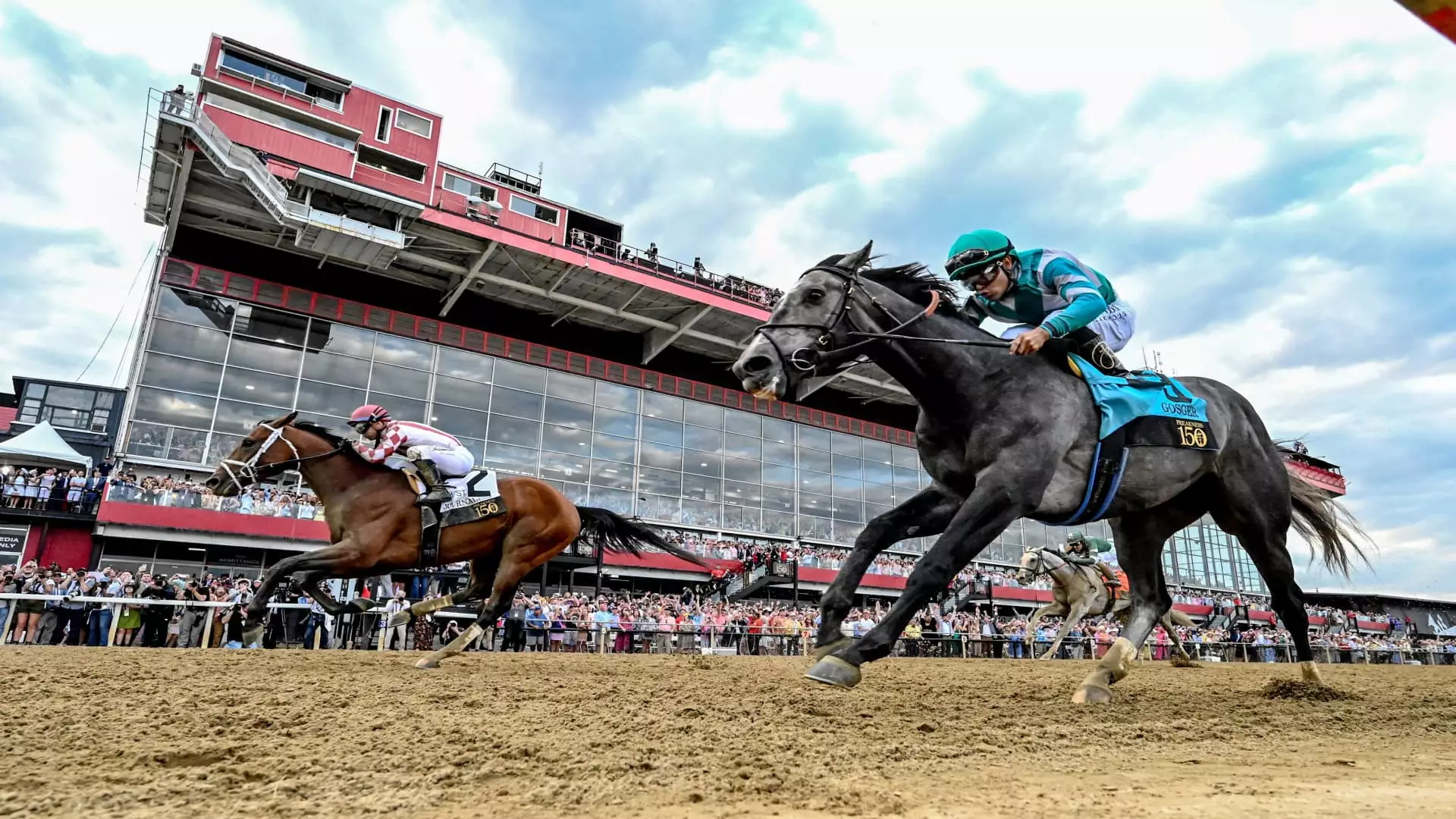In the world of thoroughbred racing, stories of redemption often inspire even the most jaded of spectators. Journalism, a horse that was once hailed as the Kentucky Derby favorite, endured the heartache of finishing second just two weeks prior. Heading into the Preakness Stakes, one could almost sense an air of inevitability that the narrative might not change. The track, a cauldron of expectations and emotions, witnessed Journalism lag behind by as much as five lengths, seemingly resigning itself to defeat against the formidable Gosger. However, this narrative was disrupted dramatically during the final stretch, as Journalism, under the guidance of jockey Umberto Rispoli, defied the constraints of doubt and emerged triumphant.
The Power of Determination
In racing, as in life, the difference between success and failure often hinges on determination. As Journalism entered the homestretch, trapped amidst the clamor of competitors and jockeys, the spectators found themselves holding their breath. It was a poignant reminder of the trials one faces when the stakes are at their highest. Journalist’s comeback wasn’t merely about speed; it embodied an unyielding spirit that demands respect. At the moment when many, including the horse’s trainer Michael W. McCarthy, surrendered hope and acknowledged the likelihood of defeat, Journalism harnessed an extraordinary strength. There is a powerful lesson here: even when the odds stack against us, the promise of a comeback exists for those who refuse to concede.
A Shift in Expectations
The Preakness revealed not only the depth of Journalism’s talent but also illuminated critical conversations regarding the format of the Triple Crown. With the recent trend of Derby winners opting out of the Preakness—often attributed to the insufficient break between races—it seems the grueling schedule may be bereft of relevance in modern racing. The absence of Sovereignty, this year’s Derby winner, underscored a disconcerting reality: the very essence of competition within the Triple Crown is at risk of dilution. Our racing institutions must examine this emerging pattern; expecting champions to regularly enhance their legacy while contending with fatigue is a recipe bound for mediocrity.
Celebrating Excellence
One cannot overlook the powerful currents of camaraderie and support flowing among the victors’ circle. For owners and trainers, their shared success crystallized in the victorious shout from owner Aron Wellman, who celebrated not just the horse but the entire team. Rispoli’s triumph marked a historic milestone, as he became the first Italian jockey to claim a Triple Crown victory. His victory is emblematic of what happens when talent meets opportunity—an extraordinary reminder to aspiring jockeys around the world that dreams are attainable.
A Call for Change
Given the limitations of the current racing schedule, there’s a critical discussion to be had about the broader implications for the sport’s future. While the thrill of the Preakness Stakes remains an indelible aspect of racing lore, the absence of Derby winners raises serious questions about the health and competitiveness of the sport. Are we, as spectators and aficionados of horse racing, comfortable with a format that may ultimately lead to a diluted championship experience? The very essence of competition lies in the very best pitting their skills against one another, and it is imperative that the system fosters that spirit rather than undermines it.
Journalism’s stunning comeback at the Preakness not only ignites hope but serves as a clarion call for reflection and change within the sport. The essence of horse racing thrives on competition—where struggles give rise to stories of adversity, and victories overshadow moments of despair. If the Triple Crown is to remain the pinnacle of these narratives, it must adapt to ensure that all champions have their rightful place at the starting gate again and again.


Leave a Reply